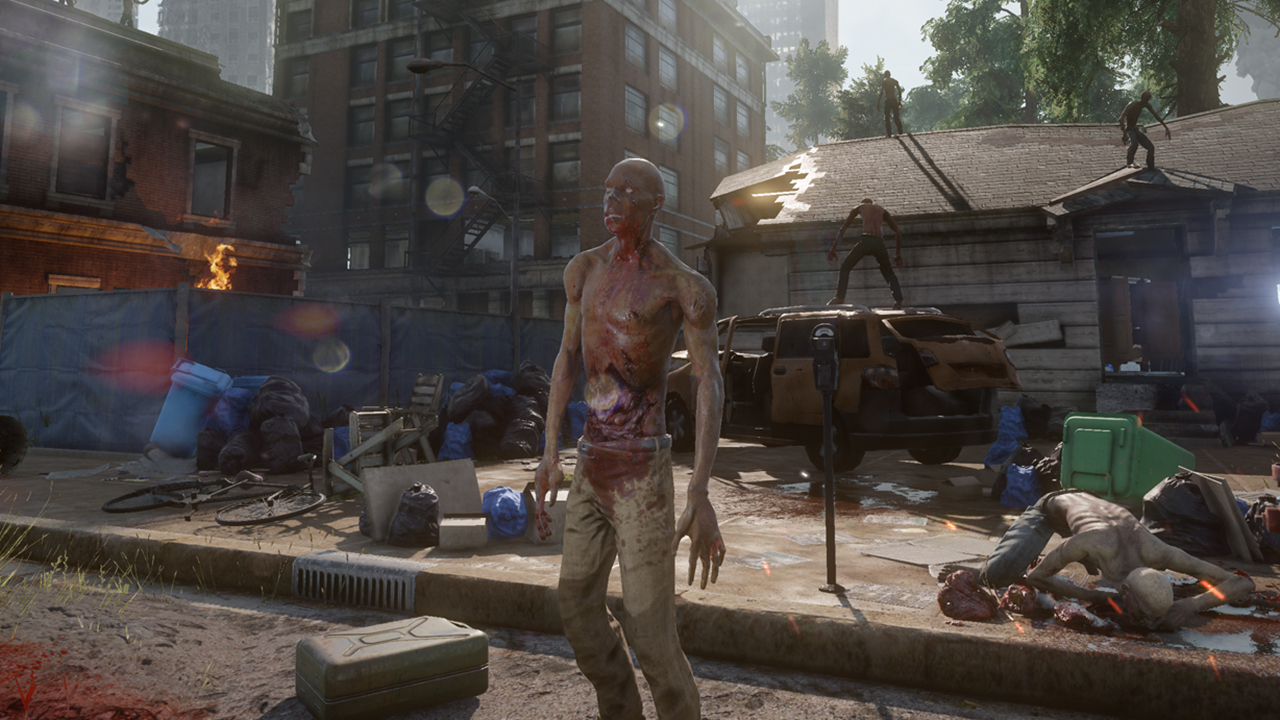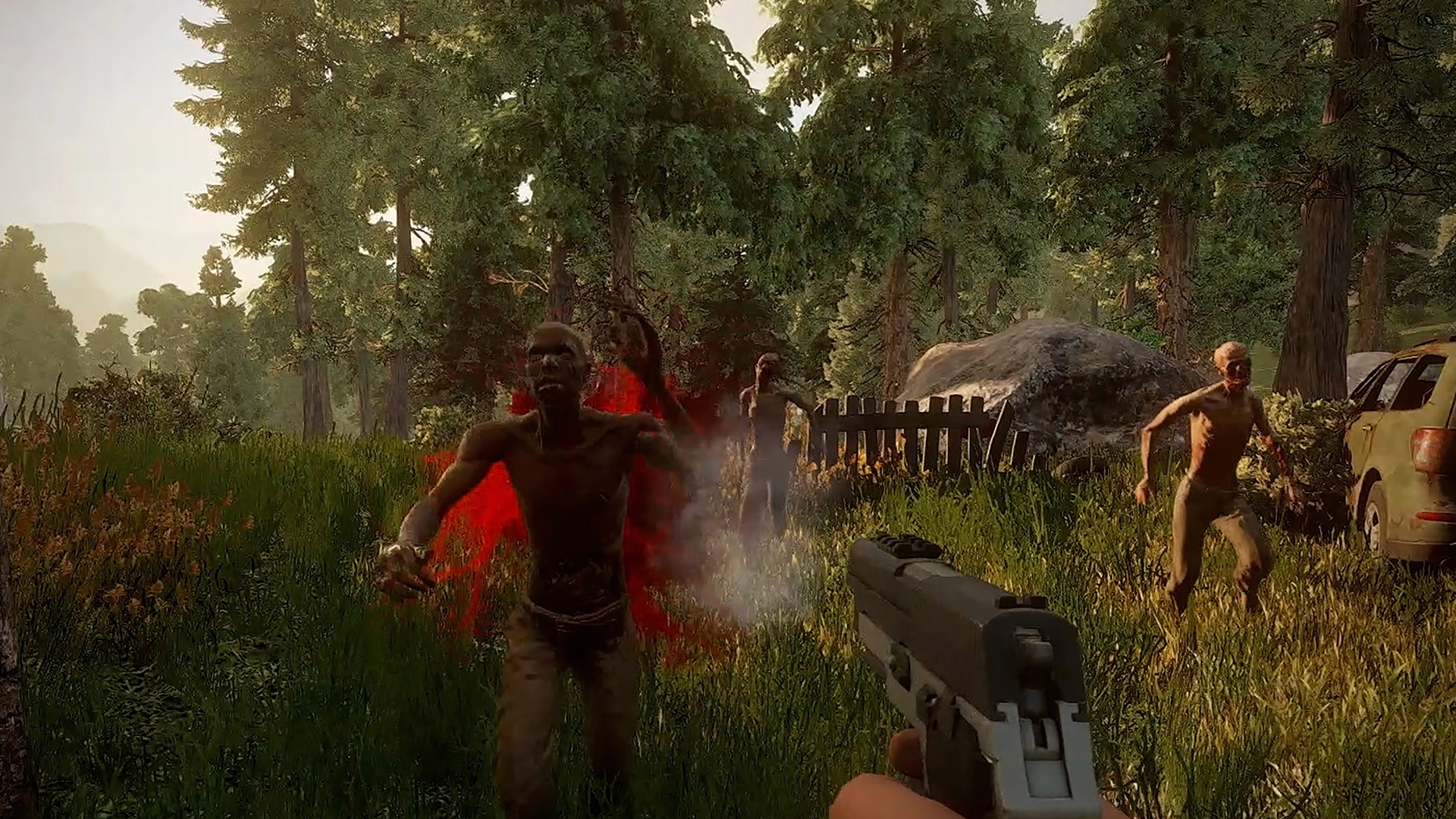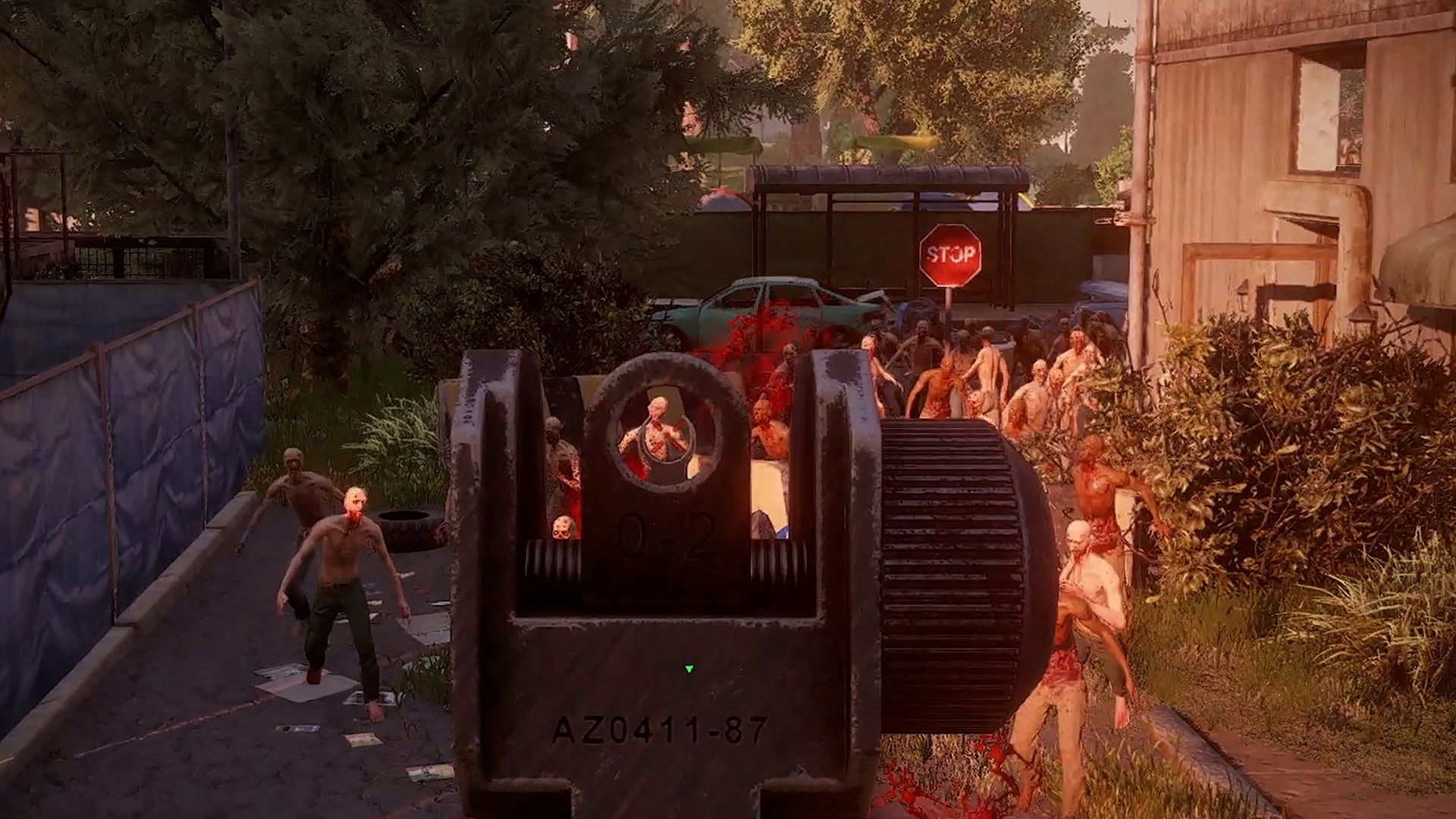Sergey Titov, the infamous creator of The War Z, on why he's making another zombie survival game
Eight years after The War Z became one of Steam's most controversial games, its creator is making a sequel.

There are few people in all of PC gaming more controversial than Sergey Titov. Google his name and you'll find YouTube videos and Reddit threads calling him everything from a fraud to a con man. It's a reputation earned by the disastrous launch of Infestation: Survivor Stories (previously named The War Z) in 2012, a controversial DayZ clone that, despite its largely negative reception, was still played by over 25 million people. In the eight years since, though, Titov has tried to recreate that success with one survival game after another, cementing the belief that he's merely pumping out the same half-finished game with only marginal improvements to differentiate each one.
Now Titov is coming "full circle," he tells me, and is making a spiritual successor to The War Z. It's called Outbreak New Dawn, and if you've played any of Titov's previous games, you probably know what to expect. But, before you get angry that Titov is making yet another survival game propped up by lofty promises, he wants to make one thing clear: Outbreak New Dawn probably isn't for you.
Seventh time's the charm
It's hard not to be skeptical or outright cynical about Outbreak New Dawn. It launches into alpha tomorrow and costs $30 for the starter edition (with more expensive versions offering more storage space and better starting loot). It looks exactly like every one of Titov's previous games—the same generic forests interspersed with abandoned houses and office buildings crawling with mindless zombies ferociously guarding randomly generated loot like guns, food, and medical supplies.
There are some notable improvements that are worth mentioning, though. Outbreak features 100-tickrate servers (premium users can access servers with 150 tickrate) and improvements to the Nightshade engine (used in all of Titov's games) that supposedly makes it possible to render hundreds of zombies in one area without tanking performance. That zombies populate areas in a much higher density is actually pretty cool, and I can see how it might lead to some intense situations more reminiscent of Left 4 Dead than DayZ. In the video below, for example, two characters make a last stand on top of some cars against dozens of charging zombies. "It's a much smoother and a much more skillful shooting experience for players," Titov tells me over Skype.
Unlike Titov's previous games, which were almost exclusively focused on PvP, Outbreak takes some cues from games like Escape From Tarkov. Safe areas dotted around the map have NPC vendors who buy and sell items and offer missions that can be completed alone or in a squad. These missions are meant to provide more structure, Titov explains, so players aren't just wandering aimlessly hoping to bump into other people.
The team at Free Reign Entertainment is even hoping to add group raids similar to Destiny 2 that will take players to instanced zones that focus purely on PvE shooting. "And, yes, there are zombies," Titov says. "And, while zombies in Outbreak are actually much smarter and more fun to deal with and there is a much bigger PVE component to the game than there was in our previous games, we still believe that they are just a side dish to your primary piece of the meal, which will be PvP."
Six years ago a game like this would make sense, but, ignoring Titov's contentious history, the thought of playing another incomplete zombie survival game is exhausting. You can only spawn, loot, and die so many times before it becomes a kind of Sisphyean torture. Sitting down with Titov, I had to know: Why in God's name would someone want to sell an unfinished zombie survival game in 2020?
Keep up to date with the most important stories and the best deals, as picked by the PC Gamer team.
A lot of those players have been messaging us ... and pretty much saying, guys, we want an updated The War Z.
Sergey Titov
"The War Z has a huge, huge playerbase," Titov says. "It's like 25 million people that have and still play The War Z for eight years now. And a lot of those players have been messaging us and sending emails and talking on the forums—everywhere on social media—and pretty much saying, guys, we want an updated The War Z. So we started thinking about what we can do. What do we, as players, not as developers, want to see in a game? That's Outbreak."
It might be hard to believe that The War Z is that popular, but Titov appears to be right. Though Steamspy is not as accurate due to changes in how Steam publicizes user data, it estimates upwards of 11 million people have played Infestation (or one of its spin-offs) on Steam, and Titov says roughly 60 percent of the game's audience actually comes from Southeast Asia, outside of Steam, where its free-to-play incarnation continues to be popular. The Infestation Facebook page for Thailand, for example, has nearly 500,000 subscribers and is still surprisingly active.

That so many people have and continue to play one of the PC's most condemned games is fascinating. Despite the controversy and hate, The War Z and its successors, like Shattered Skies, obviously resonated with a small number of players. Both games' Steam forums are full of threads asking about private servers or emulator projects, and Outbreak's Facebook page has several thousand commenters eager to jump into the alpha. It's those players that Titov says Outbreak is for, though he hopes others might be willing to give it a try.
"It's always been a love-hate relationship," Titov says. "A certain percentage of our players are huge fans, and we are making [Outbreak] first and foremost for them. But there was always a group of people on the opposite end of the spectrum who hates what we are doing and they just don't get the experience they hope to get from [our games] and we understand that."
It's a diplomatic response, but it also downplays the criticism of Titov's games and the suspicious ways he manages them. To hear him talk about it, you might think he's got a small but vocal group of haters, but every single one of Free Reign Entertainment's games—and its numerous Battle Royale spin-offs and reboots—have, at best, a "mixed" rating from Steam's user reviews. Most serious reviews complain about poor optimization, widespread cheating, or persisting bugs and a lack of updates. It's also clear that there's a lot of lingering animosity over the disaster of The War Z's launch. Reviews with constructive feedback are hard to find. Most are filled with malicious insults or exaggerated statements, like comparing The War Z to masturbating with sandpaper.
With Sergey Titov, it's difficult to separate the hyperbole from the fact. His games are a fascinating example of how communities like Steam and Reddit can define the narrative surrounding certain games even though they have a happy audience that silently enjoys them. That isn't to say The War Z (or any of its successors) aren't bad games, but Sergey Titov probably isn't the sinister con-man that some would have you believe. Game development is extremely hard, and making bad games or missing the mark on promised features isn't a crime, even if it happens repeatedly.

A bird in the hand
There was always a group of people ... who hates what we are doing and they just don't get the experience they hope to get from [our games] and we understand that.
Sergey Titov
Titov, though, isn't doing himself any favors. Though there are marginal improvements and differences between each of his games, they also feel so similar that it's easy to see why players feel like Titov is just reselling the same game every few years. Titov doesn't try to hide this—he tells me that Outbreak recycles "around 60 percent" of the art assets in Shattered Skies, though the team is swapping in more original assets as time goes on.
It's also weird how often Titov changes the names of his games each time he tries to reboot them. Last Man Standing, for example, is just a Shattered Skies battle royale mode but makes no reference to the original game anywhere in the Steam page. Likewise, New Frontier and Magnificent 5 are just spin-offs of the now defunct Wild West Online, an ill-fated Red Dead Redemption 2 clone using the Nightshade Engine, that Titov inherited after the original developers folded.
"There is this notion that we abandoned [our games], I don't want to just say you're wrong, but I'm seeing what I'm seeing," Titov says. "And what I'm seeing is that we did a pretty good job actually supporting [our games] for a pretty long time.
"For all of our operations, we've been like that," he adds. "We supported our games way past the point where it was financially viable, even. We've always been saying, okay, when we've seen that the game is declining, we've tried different things, there probably is no point of return there, we turned off monetization part of the game, we stopped selling the game or we stopped taking the currency from the game, and we pretty much supported the game up to the point where there was no one left playing and then we decide to shut it down."
That each of these games is structured around a 'games as a service' model exacerbates the issue, creating this vicious cycle of animosity that has haunted much of Titov's career. It's the same cycle again and again: People invest time or money into his latest game, but there's not enough players to sustain its continued development. As money dries up, Titov's team can't afford to deliver the updates needed to improve it, so they throw a hail mary and relaunch it as a battle royale or free-to-play spin-off that also inevitably fails since the underlying issues are still present.
And because live-service games are only ever as good as their latest update and only worth playing if there's the promise of more to come, players feel like they've been mistreated—even if they'd already played for hundreds of hours. Then a couple of years go by, the team makes some improvements to the Nightshade Engine and releases a new game and the cycle inevitably repeats. When I ask Titov why he doesn't just try making other games, his answer is so simple it's hard to argue against it: "We are making games that we want to play," he says.
To expand on his point, Titov explains how many of his developer friends have switched to mobile games because the audience and potential revenue is much higher. "They say, 'Sergey, why are you still not making mobile games?' And my mantra has been always, guys, I know [the survival] genre. I know that market, and that gives me that small competitive edge over me going to another genre or doing other games. It's however small, I'll take it. It's my advantage and my secret sauce."
Outbreak New Dawn is also promising full refunds regardless of play time within 30 days of purchase. The game isn't available on Steam (Titov says a Steam launch would likely coincide with the full release in 2021), but uses a website called Xsolla to handle transactions. Considering how suspicious players are of Titov, I decided to test this refund policy out and after a few days was given a full refund without having to do more than fill out a quick form.
Titov continually circles back to what he said earlier about Outbreak ultimately being made for the small group of fans who genuinely enjoyed Shattered Skies and The War Z. To everyone else, "If you are in doubt, to be honest, it's early alpha, do not come to the game," Titov says. "Don't buy the game right now, it's probably not the game for you at this point anyway. We can't force you or change your perception. The only thing we can do is to make as good of a game as we humanly possibly can, and we will provide you all the tools to look into the game and decide for yourself if it's the game for you or not. That's the best we can do."
With over 7 years of experience with in-depth feature reporting, Steven's mission is to chronicle the fascinating ways that games intersect our lives. Whether it's colossal in-game wars in an MMO, or long-haul truckers who turn to games to protect them from the loneliness of the open road, Steven tries to unearth PC gaming's greatest untold stories. His love of PC gaming started extremely early. Without money to spend, he spent an entire day watching the progress bar on a 25mb download of the Heroes of Might and Magic 2 demo that he then played for at least a hundred hours. It was a good demo.


